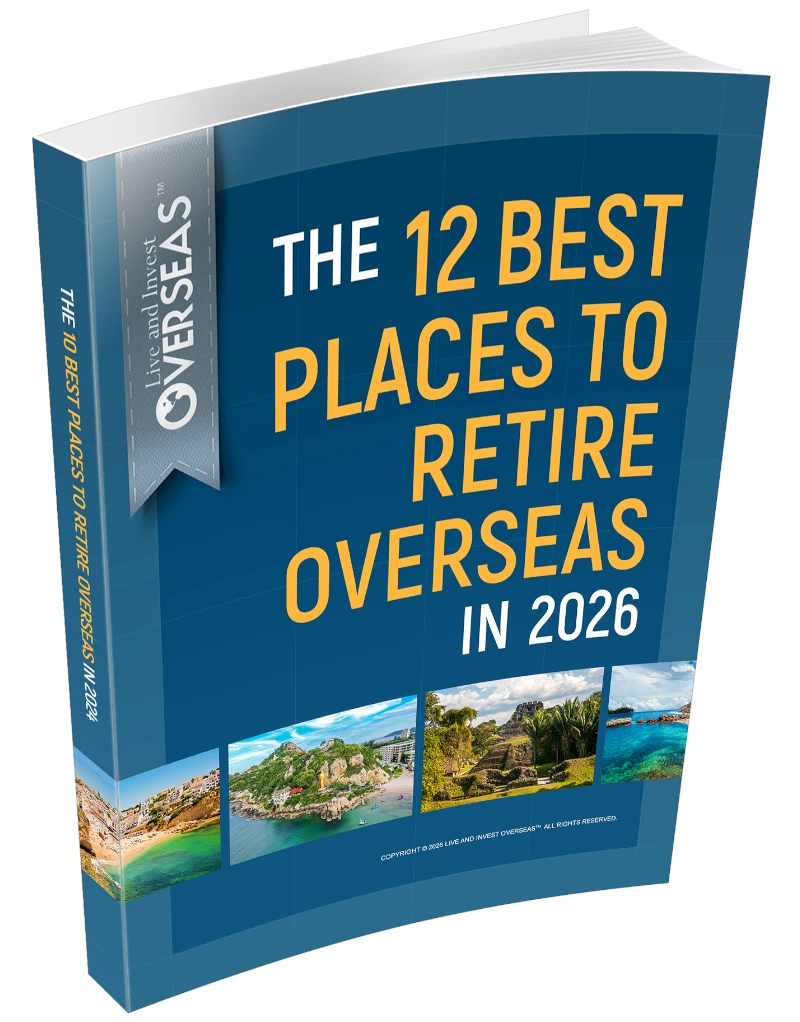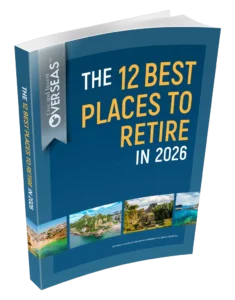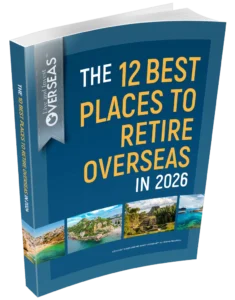Forty million lawsuits.
Every year, Americans defend themselves against 40 million lawsuits.
Not surprising—in a country with 1.3 million lawyers.
No doubt, many of these lawsuits are frivolous… and even a frivolous lawsuit can wipe out your lifetime’s work and leave you destitute.
It’s only prudent to protect yourself.
But how do you do that?
You need to have the right structures in place… in the right places… and you need to set these up before you get sued.
Once court papers are served, it’s too late to prepare.
Being in the right, or having a good lawyer, doesn’t necessarily give you any protection.
Even if you win the legal battle, the costs of defending yourself could bankrupt you anyway.
But there are three steps you can take to discourage unscrupulous legal claims…
1. Move To A Less Litigious Country
Pick any country in the world except Germany, Sweden, Israel, and Australia and you reduce your chances of getting sued just by moving there. These are the only five countries in the world that have more lawsuits per person than the United States…
Even if you do move to one of the five countries that are more litigious per capita than America… If you get sued and you lose your case in any of these jurisdictions, the payouts awarded are likely to be far lower than you would face in the States.
The “moving your life and business” option will generally lower your litigation risk, but it might not deter someone who has already decided to come after you, like a bankruptcy court or ex-spouse.
2. Increase Your Privacy
Here’s the bare-naked truth…
Complete financial privacy no longer exists.
There are no more numbered (unnamed) Swiss bank accounts, and offshore bearer bonds and shares (where ownership isn’t recorded) are almost a thing of the past too.
Panama does still allow bearer shares but taxes dividends at 20%. The Marshall Islands is the only legitimate place bearer shares are still regularly used.
There are countries like Angola or Iran that won’t report your assets to the IRS… but I’m assuming you don’t want to bank in those countries.
However, there are still very legitimate ways to increase your personal financial privacy… even if, as I say, total (legal) financial secrecy is a thing of the past.
Why would you want to increase the layers of privacy surrounding your assets?
Well, it’s very simple: If somebody knows you own XX assets, they may be more likely to sue. If they don’t know the extent of your assets… litigation may be a less appealing prospect.
This type of privacy is far from a perfect security mechanism, but it can be a good first step to keep the vultures off your trail.
Offshore jurisdictions can help to increase your layers of privacy through methods like anonymous companies, trusts, offshore banks, unchecked mutual and hedge funds, and unregulated private investment industries.
However, to curtail money laundering, most countries have brought in beneficial ownership registries. This is a register of who ultimately owns what in a country.
Let me be very clear: As an American citizen, there’s no privacy from the IRS. You will be required to report everything to the IRS (except for directly held foreign paper currency, foreign real estate in your own name, and directly held tangible assets such as gold, art, coins, etc.).
Legal developments like FATCA (the Foreign Account Tax Compliance Act), the FBAR (Foreign Bank Account Reporting form), the CRS (Common Reporting Standard), and BEPS (Base Erosion and Profit Sharing) have made privacy from the taxman a thing of the past.
So, there is no privacy from Uncle Sam… but there may be privacy from the Average Joe who wants to sue.
Many jurisdictions’ beneficial ownership registries aren’t open to the public.
Public Access:
In some countries, who owns what company is a matter of public record. These countries provide no privacy at all, and the guy suing you can find your assets easily. Several countries in Europe fit this category.
Restricted Access:
Most jurisdictions now allow some access to their register by foreign law enforcement and tax bodies. This means you can’t hide from the taxman, but you can usually find ways to prevent others finding out if you have assets there. Most of Latin America falls into this category.
However, bear in mind that the U.S. passed the Corporate Transparency Act (CTA) in 2021 that removes full privacy for U.S. citizens abroad… Americans really do get a raw deal from their government when it comes to ownership of assets overseas. This is undoubtedly one reason why a record number of Americans have renounced U.S. citizenship in recent years.
Secret:
Some countries refuse to allow foreign access to their registers, if the register exists at all. These countries are very secret, but will be blacklisted, meaning the banks there can’t use the conventional international banking systems.
And when you see the list of some of the most secret countries, these aren’t places I’d trust to keep my assets safe…
Who would trust Angola or Communist Vietnam with their wealth, no matter how “secret” the country is…?
Would you trust the courts in the United Arab Emirates if you got into a dispute with a local royal prince?
From my point of view, the best privacy jurisdictions are: St. Kitts and Nevis; Belize; St. Lucia; The Cook Islands; Panama; and Antigua & Barbuda.
3. Increase Your “Layers Of Protection”
The real secret to asset protection these days isn’t hiding your assets… it’s making your assets so unattractive or difficult to acquire by suing that no one will bother going after them.
The best way of doing this is moving those assets offshore to a low-tax jurisdiction that is repellant to litigation.
In other words, protect yourself using offshore banks, corporations, and trusts. There are various levels of asset protection available offshore.
U.S. courts don’t have jurisdiction over foreign assets or people.
So, if someone wants to sue you for assets you hold offshore, they must go to the country where those assets are legally held, hire a lawyer, gather evidence that is germane in the jurisdiction, and sue you there.
The best offshore jurisdictions have legal systems set up to protect companies from foreign interference.
To bring legal action in these countries is difficult, expensive, and beyond the scope of most litigants in the U.S.
Buying unreportable foreign assets like real estate in your own name and moving out of the U.S. is the weakest way of protecting yourself, but it does help.
You don’t have to report foreign real estate that’s held in your own name to the IRS, but if someone searched a property register, they could easily find your overseas property, precisely because it’s in your own name.
To get at your assets, a litigant would have to find you and sue you in an overseas country, or get a U.S. court judgement enforced overseas, which isn’t that easily done.
Placing your assets in an offshore company and keeping your cash in an offshore bank account is a much stronger way of protecting your assets.
For most ordinary investors, this is all the protection you will realistically need.
To get to those assets, the litigant must know they are there, which can be difficult to learn because most beneficial ownership registries (including most in the EU) are not open to the general public.
If a litigant does find out about them, getting at your assets in a Nevis or Belize corporation—or seizing your cash from your offshore bank account—requires a lot of effort.
The person suing you has to go to each country where you have assets or bank accounts, hire an expensive lawyer, and win a judgement from a court that probably doesn’t look favorably at foreigners coming to their country to sue local companies.
The absolute best way to secure your assets and get maximum privacy, is to go a step further than setting up an offshore company, and establish an offshore trust.
Offshore trusts work best when located in a low- or zero-tax jurisdiction, like Belize or the Cook Islands.
However, out of all the options given, they are also by far the most expensive to set up and maintain.
In fact, they are often so expensive to set up that you might decide you don’t need that level of protection or cost…
You need to be protecting millions or be at high risk of litigation to warrant setting up an irrevocable offshore trust, as they cost up to and over US$50,000 just to set up, and you must pay thousands to maintain your trust every year as well.
For the average investor, a well-planned offshore company structure could provide much of the same protection for a much lower cost.
Domestic (onshore) trusts like those offered in Delaware or Wyoming are often touted as better than offshore trusts.
But there is one very important way in which they are not…
U.S. trusts are subject to U.S. court orders. Offshore trusts aren’t tied to a U.S. jurisdiction and aren’t subject to U.S. laws.
Sincerely,
Con Murphy
Contributor, Simon Letter












